REVIEWER’S NOTE: The first four episodes of Frieren were released on September 29th, but this article will only review the first episode… because I am not a crazy person, or at least not THAT much of a crazy person. Seriously, have you seen the size of this anime season!?!
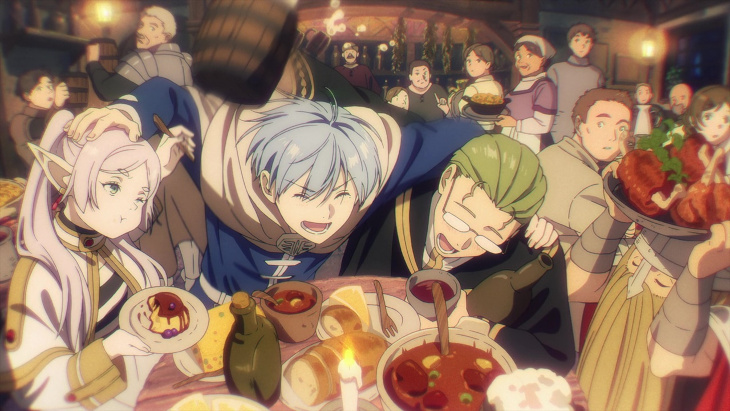
“It was a mere ten-year adventure.”
The impression that this show would be a bit different from what I’m accustomed to encountering lately struck me within a few seconds of Frieren’s OP starting. Even now, it’s a little hard to put my finger on the exact quality that grabbed me, but I think that a key element was the stripped down design of the OP. I recall thinking that, aside from a few modern flourishes to the music, this could easily have been an opening for a fantasy series from twenty to twenty-five years ago, like The Vision of Escaflowne or The Twelve Kingdoms. It was minimalist without appearing cheap, and it evoked a deliberate tone. As I worked my way through the first episode, I remember intentionally keeping my anticipation in check, but this excitement revealed something I hadn’t fully acknowledged until now. Traditional fantasy anime have gradually become pigeon-holed throughout the last decade and a half, and have by-and-large fallen into a trap set by their most popular entries. This has been a bunch of coy teasing over topics that I don’t want to overwhelm the introductory paragraph with, so let’s just tackle the key question. Is Sousou no Frieren worth checking out? Right off the bat, my answer to this question, based on this first episode, is absolutely. If I didn’t have the entirety of the new season waiting for me right around the corner, I would love to dive deep into the quartet of episodes that dropped today.
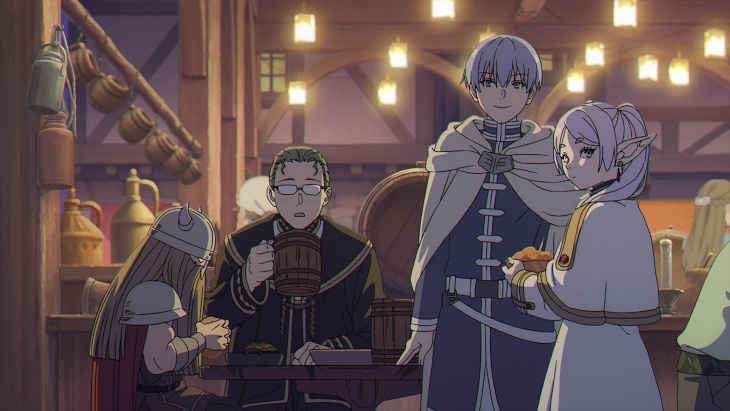
This first episode of Frieren: Beyond Journey’s End has me thinking about the impact of isekai on the anime market. I’ve spoken about a bunch of entries in that subgenre, both positively and negatively, and before I dive deeper, I want to clarify that Frieren is not only not an isekai, it is one of the least isekai shows I’ve seen in a while. You see, the “trapped in another world” subgenre has one particular feature that has permeated the fantasy genre, and that is its inherently referential nature. A character in an isekai is directly aware that they are in a fantasy world, and that frees them up to play with the conventions of the genre in a way that a native to that world wouldn’t think to do. Think about it. How many titles in recent years, isekai or no, have deliberately juked the conventions of the fantasy genre by having the heroes go off and take on mundane employment or by drawing directly upon gaming conventions? That’s not to say that all modern fantasy shows do this, but the significant majority have taken to playing with meta-textual elements. Frieren doesn’t come across as interested in the meta-text, and that’s fine, because its text has a lot to say already. The show follows the titular Frieren, an ageless elven mage who was part of the adventuring team that defeated the demon king and brought peace to the lands. Now that they have accomplished their goals, the team returns home, and its members are content to go about their lives, but that has a significantly different meaning for Frieren. She doesn’t appear to age, and her perception of time is vastly different to that of her human and dwarven compatriots. Her own life may not pass briefly before her eyes, but the lives of others certainly do. How does one find grounding in a world where a decades-long friendship can seem like a fleeting encounter?
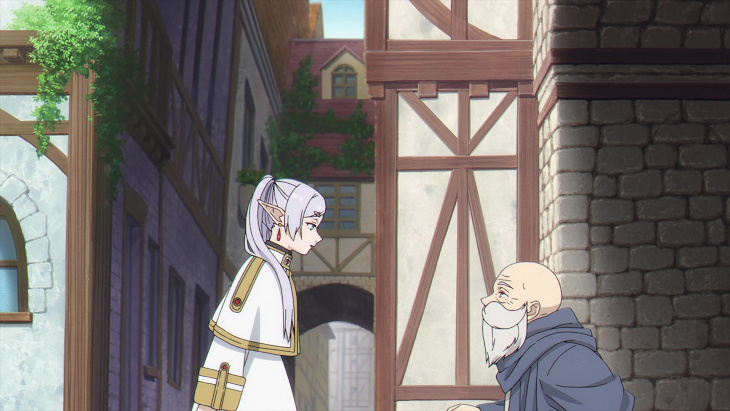
The fact that Madhouse is helming the production is probably the key detail that drew me to watch this series, and I’m thankful it did. With an anime season as stacked as this one, it’s not hard for me to envision myself skipping over this series, but fortunately I didn’t miss out. Outside of Bibliophile Princess (…Wow, that existed), it’s been a while since I watched a Madhouse series, but I’m pleased to see they handled this adaptation so well. There is a slight sense of melancholia that underlies the episode, but it is careful to never reach the point of being dour or overwrought. Even the most somber moment provides deftly handled bits of levity that feel natural to the moment. Special praise deserves to be heaped onto Evan Call’s score. I’ve never watched Violet Evergarden, but hearing his work here makes me want to watch that series solely to hear more of his work. Also, while I can shower praise on the OP, it’s worth noting that this show’s ED might even surpass it. I love this ED to no end, and will absolutely recommend it. I don’t know the last time I encountered a piece of media that struck this distinct chord of bittersweet joy.
Before I wrap up, a few Notes and Nitpicks:
- Seriously. How many anime have taken the question of, “I defeated my enemy. What do I do now?” and turned it into a joke? I can think of an instance I reviewed just last year.
- Have I ever seen 4 episodes of an anime drop for a premiere? That’s releasing a 3rd of your first cour as a premiere! I’m excluding Netflix obviously, as their binge-centric approach is centered around large scale content drops. I briefly considered watching all four episodes so that I could offer a more complete overview of my thoughts, but my shortlist of anime for this season is already lengthy, and I don’t want to expedite any burnout.
- I’ve largely been checked out from anime for much of this past year. Much of my free time has been spent on reading and gaming, but it looks like I picked one hell of a season to return to.
- I’ve been thinking back to other fantasy anime from the past decade that eschew the modern self-referential quality that isekai has popularized. The few that come to mind already feel like notable outliers to the genre, such as The Ancient Magus’ Bride or To Your Eternity.
- I do want to add that my statements regarding isekai are an observation, not a criticism. Being referential can be both a restriction and an opportunity. It serves as a barrier to world immersion and makes a setting feel superficial, but also allows openings for a series to be genre-savvy and subvert expectations.
- It may seem weird that I cited The Vision of Escaflowne, since technically it qualifies as an isekai, but its characters lack the meta-texual genre awareness that is central to so many recent titles and their sense of humor.
Sousou no Frieren’s first episode takes a sometimes joyous, sometimes heartbreaking look at some tough questions about how to embrace life and make the best use of your time and others’. It’s a theme which is intrinsically human, but is elevated to new peaks when surveyed by non-human eyes. This is worth checking out.
Score: 5/5
Superb

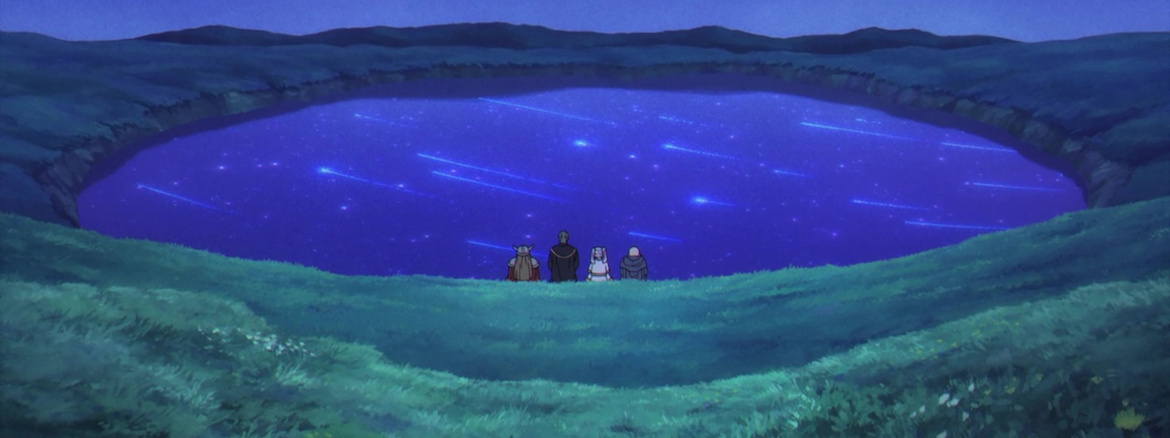
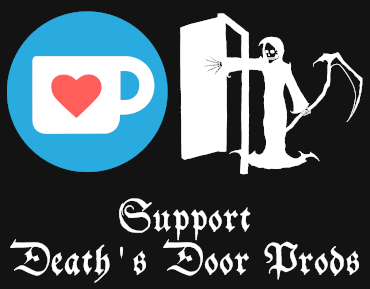

Add comment